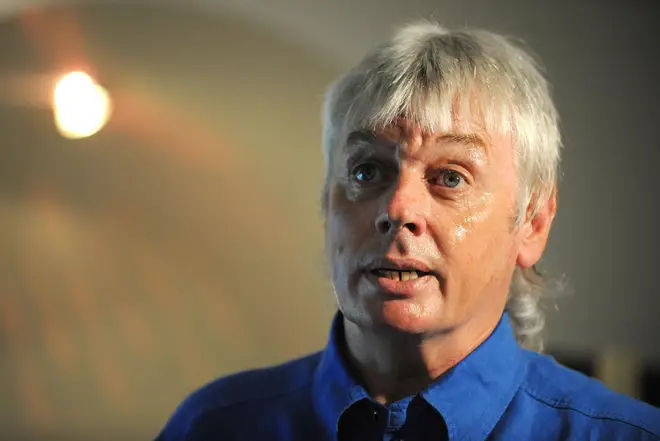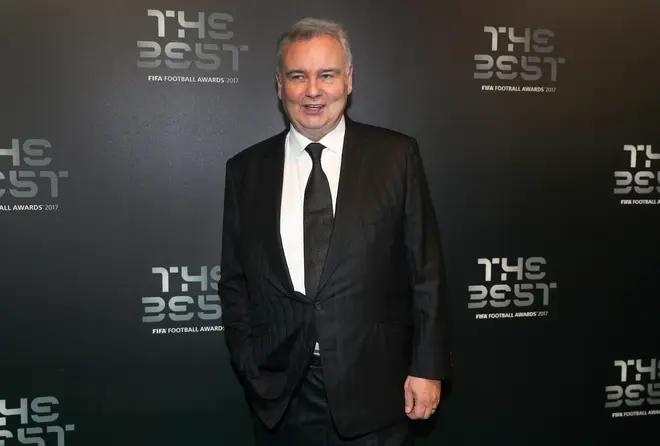
Oli Dugmore 4am - 7am
20 April 2020, 20:46

Ofcom has sanctioned London Live after it broadcast an interview with the conspiracy theorist David Icke about the coronavirus pandemic.
The regulator also said that the London Live interview with Icke "risked causing significant harm to viewers".
ESTV "failed in its responsibility to ensure that viewers were adequately protected", the regulator added.
Ofcom will now consider whether to impose a further sanction and is "directing London Live to broadcast a summary of our findings on a date and form to be decided by Ofcom".
Follow our coronavirus liveblog here
The local TV station broadcast the 80-minute interview with Icke earlier this month.
During the broadcast, he claimed that the pandemic was cover for a "global world order" to purposefully crash the economy, end the use of cash payments, and track every individual.
He also stated that Covid-19 is a weapon being used by the US and Israel against Iran and spoke out against any vaccine to combat the virus.
A spokeswoman for London Live apologised for the incident.
She said: "London Live respects Ofcom's decision in this case and apologises for any harm this may have caused."

Listen & subscribe: Global Player | Apple Podcasts | Google Podcasts | Spotify
Last week, the media regulator also criticised comments made by Eamonn Holmes about false claims of a link between 5G and Covid-19.
Ofcom said it has issued "guidance" to ITV over "ill-judged" comments made by Eamonn Holmes about the discredited theory linking coronavirus with 5G technology.
The media watchdog also imposed a sanction on ESTV over a London Live interview with conspiracy theorist David Icke about the virus.
The organisation is currently prioritising cases involving coronavirus in a bid to stop the spread of misinformation.
Last week, Holmes drew criticism after he discussed the 5G conspiracy theory on air.
A statement from the organisation said the host of ITV's This Morning "risked undermining viewers' trust in advice from public authorities and scientific evidence".
It added: "His statements were also highly sensitive in view of the recent attacks on mobile phone masts in the UK, caused by conspiracy theories linking 5G technology and the virus."
In a discussion about 5G technology, Holmes told fellow presenter Alice Beer: "I totally agree with everything you are saying but what I don't accept is mainstream media immediately slapping that down as not true when they don't know it's not true.
"No-one should attack or damage or do anything like that but it's very easy to say it is not true because it suits the state narrative."
The presenter added: "That's all I would say, as someone with an inquiring mind."
The following day, Holmes said on the programme that he would like to "clarify" his comments, adding that there is "no scientific evidence to substantiate any 5G theories".
However, he did not apologise for the incident and said he had been "misinterpreted".
Ofcom said it had taken into account his statement, as well as "the prominent caption which rooted the discussion in 'fake news'" and the context provided by Beer, who "strongly rejected" the theory.
However, it added that guidance had been issued "to ITV and its presenters".
An Ofcom spokeswoman said: "Broadcasters have editorial freedom to discuss and challenge the approach taken by public authorities to a serious public health crisis such as the coronavirus.
"However, discussions of unproven claims must be put fully into context - especially at a time when mobile phone masts in the UK are being attacked, risking significant harm to the public."
An ITV spokeswoman said the broadcaster has "noted the guidance given by Ofcom".
The theory that 5G is linked to Covid-19 has been widely discredited by experts.
Brendan Wren, professor of microbial pathogenesis at the London School of Hygiene and Tropical Medicine, previously said a connection between the technology and the virus would be "both a physical and biological impossibility".